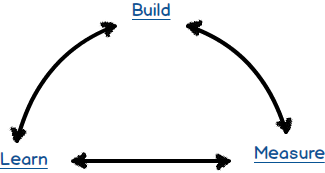Does your company Quora?
Tweet
rss
Does your company quora? If you work for Georgia Pacific, Bank of America, Intel or some other large organization with distributed, institutionalized knowledge of some complexity, you've seen the need for capturing and sharing knowledge. How do you do it? Should you be using something like Quora?
What is Quora?
First of all, do you know what Quora is? On the surface, Quora is a question and answer (Q&A) website, edited and organized by a community of users. The service became public in June of 2010. At its core, though, you should think about Quora as an evolving and living knowledge repository.
What do I mean by evolving and living? It means that it is not static like a book. Copernicus's book On the Revolutions of the Heavenly Spheres was a respository of knowledge. It was Copernicus's knowledge. And except for subsequent revisions, it represents a relatively static piece of knowledge. And it is a tiny piece of human knowledge.
Okay, but why should I care?
Suppose, you are an auditor-employee at Ernst & Young (as I was once upon a time). You have a question on the job:
How do you test for the existence of timber asset inventory distributed across a large area?
(Normally, to confirm physical assets, an auditor literally visits a site and confirms that the asset valued on financial statements exist. This is relatively simple if you had one plant that housed, say auto parts. Tougher if you had many retail locations, or if the asset were timber in another country, and you had to make a judgment decision about how big the risk was that the client was lying, and whether that was material to the financial statements.)
You probably would:
- Google it and will not find answer
- Look into company blogs and newsletters, and not find the answer
- Look at official accounting pronouncements, and probably not find the answer, then
- Ask your manager, who will have to think about it and research it
- You and your manager email the partner and some friends in the company what their thoughts are
- Spend more time researching the answer
- Then, documenting the findings in a memo
A Thought Experiment
Stop to think about how inefficient that is. How many people had to have their minds distracted by one question, and how much time did it involve? And what if similar issue popped up tomorrow?
Now, stop also to think. Let’s say your team was based in Greensboro, North Carolina. What happens if there was another team in Sacramento, California who asked a similar question. Will the Sacramento team know that the question has been answered by someone in North Carolina? Or at least that someone else invested time and mental energy toward a solution, and that the findings could be useful building blocks for a solution to the problem?
Lean org knowledge sharing
I think you get the idea. If you are in some leadership capacity, one of the top issues you think about is how do we become better, not simply at an individul level, but as an organization. You know in your gut (and from experience), it has something to do with the ease of transmission of information and knowledge across the organization.
You might visualize the problem like this.
How do you decrease the cycle time of: build, learn, measure (lean cycle)?
Enter Quora. Like Google, the scope of the knowledge content is, for all intents and purposes, infinite.
To create a structure, there are topics that users can create and follow. Today, individual users use Quora to do things like:
- ask questions (about anything)
- answer questions about a specific topic to gain creditibility and following
- blog about something
- discover interesting knowledge content
Telescope out from the individual uses and consider the case study above, and you can see how useful a system of knowledge sharing like this can be for your organization.
(Many of you may also note, that there is a product called Yammer, which is like corporate Quora. It was acquired by Mirosoft. But, read on.)
Before you build an internal version
I did not know this as I was writing this post, but it turns out Quora recently rolled out an organization account feature - looks like it was May 2014. If you are an organization leader, or even a team manager, it might be worth while experimenting with this as a team, and learning from it.
I realize that some of you maybe thinking about building your own version customized to your corporate needs. This always happens. I want to tell you, don't. Short answer is, you are delusional if you think you can build a product as good as Quora.
So, for a period of time in the history of the web, there was this diverging movement between this thing called the internet and the intranet.
Does anyone talk about intranet anymore? Not really. Why? Because the internet is so much better. And why is that? Because your company's 2000 users versus 2 billion users. That's why. The same principle will carry over to a development of a tool like this.
Challenge
Take that last thought. If that's true, should your organization be using anything other than the off-the-shelf web application that's a current market leader?
Call to action
If you are the chief information officer, or the chief technology officer, or a senior data scientist, or a general manager of one of the large Fortune companies, and if you have not heard about Quora or have thought about some of the issues raised here, I would love to better understand why. Please feel free to get in touch.
If you enjoyed this post you may also enjoy:
And you may enjoy reading a book by Senge about learning organizations:
The Fifth Discipline: The Art & Practice of The Learning Organization
Team learning is vital because teams, not individuals, are the fundamental learning unit in modern organizations.
Suggestions?
What do you want to talk about? Send your suggestion! If you found this useful, please share it and subscribe.
comments powered by Disqus
Get new posts via email:
About David

David at Crater Lake National Park
Read recent posts
- Guides to help you think like a hacker even if you don't program
- Mapping Your Career
- Does your company Quora?
- Mobile product teardown TripIt vs TripCase
- Hotel Tonight teardown: trigger and room analysis

